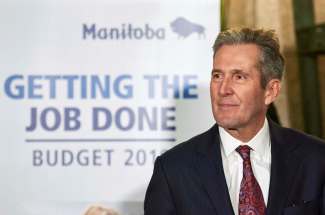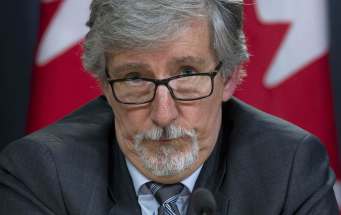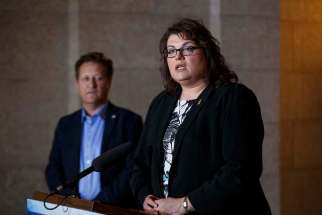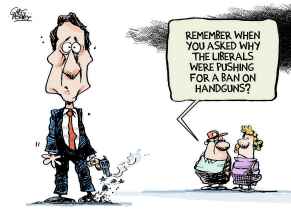Lifeline or anchor? Feds grapple with desire for better Facebook privacy while admitting reliance on social media
Read this article for free:
or
Already have an account? Log in here »
To continue reading, please subscribe:
Monthly Digital Subscription
$0 for the first 4 weeks*
- Enjoy unlimited reading on winnipegfreepress.com
- Read the E-Edition, our digital replica newspaper
- Access News Break, our award-winning app
- Play interactive puzzles
*No charge for 4 weeks then price increases to the regular rate of $19.00 plus GST every four weeks. Offer available to new and qualified returning subscribers only. Cancel any time.
Monthly Digital Subscription
$4.75/week*
- Enjoy unlimited reading on winnipegfreepress.com
- Read the E-Edition, our digital replica newspaper
- Access News Break, our award-winning app
- Play interactive puzzles
*Billed as $19 plus GST every four weeks. Cancel any time.
To continue reading, please subscribe:
Add Free Press access to your Brandon Sun subscription for only an additional
$1 for the first 4 weeks*
*Your next subscription payment will increase by $1.00 and you will be charged $16.99 plus GST for four weeks. After four weeks, your payment will increase to $23.99 plus GST every four weeks.
Read unlimited articles for free today:
or
Already have an account? Log in here »
Hey there, time traveller!
This article was published 03/05/2019 (2417 days ago), so information in it may no longer be current.
OTTAWA — Facebook is staring down massive privacy breaches, criticism over allowing the spread of extremist content, and a looming court challenge from Parliament.
But don’t expect Canadian politicians to quit the social media platform any time soon. Because, like Facebook relationship statuses, it’s complicated.
The platform is one of the strongest tools MPs have for keeping in touch with their ridings, and Ottawa now spends more on social-media advertisements than those placed in television, radio and newspapers.
The company itself says Canadians are “among the most engaged Facebook populations in the world,” with 24 million residents using the site monthly — some 98 per cent of smartphone users in the country.
Facebook will undoubtedly play a role in the looming federal election, even as political parties call for beefed-up rules around privacy and propaganda.
“We are reliant on them,” said Natasha Tusikov, a York University professor who studies technology regulation. “We’re a big country. It’s great to reach out to people, but it’s come with a very high price.”
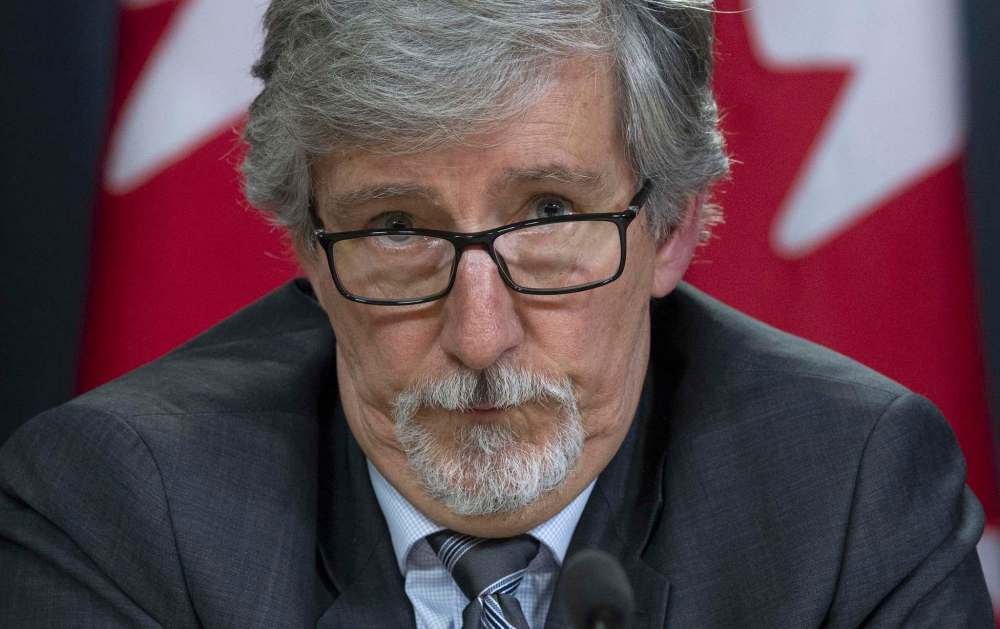
A changing tone
Last week, Canada’s privacy watchdog announced he’d be taking Facebook to court for breaching numerous federal laws in the Cambridge Analytica scandal.
In March 2018, a whistleblower revealed the firm harvested personal data from millions of Facebook accounts without their consent, including more than 600,000 Canadians, and used it for political purposes.
“Canadians are at risk because the protections offered by Facebook are essentially empty,” privacy commissioner Daniel Therrien said.
A Facebook spokeswoman wrote “there’s no evidence that Canadians’ data was shared with Cambridge Analytica,” and argued the U.S.-based firm has taken strides to secure personal information. Yet, Therrien insists the company broke the law.
The Trudeau government has pledged some sort of action, and is slowly changing its tone.
Existing rules not enforced, advocate says
OTTAWA — Public-media advocate Daniel Bernhard argues Ottawa has enough rules on the books to regulate Facebook and other tech companies.
OTTAWA — Public-media advocate Daniel Bernhard argues Ottawa has enough rules on the books to regulate Facebook and other tech companies.
“This is about enforcement and applying the law where it exists,” said Bernhard, head of Friends of Canadian Broadcasting. “The government seems terrified of governing when it comes to Facebook, Google, Netflix, Amazon (and) YouTube.”
To Bernhard, Facebook carries content like news outlets do, but avoids fines and sanctions a newspaper would face for allowing hate speech.
“Facebook claims absurdly not to be a publisher, and we seem to be letting them set the definition,” he said.
Meanwhile, Bernhard argues the privacy watchdog’s probe into data leaks shows the federal Liberals aren’t interested in cracking down on violations of Canadian law.
“If they were really serious about dealing with this stuff, they’d find a way. The fact that the privacy commissioner seems to be going it alone suggest to me that the government has decided it’s not interested in any form of confrontation,” he said.
“People are pointing fingers at Facebook (but) the government is condoning this bad behaviour by allowing it to continue unpunished.”
Bernhard, who advocates for greater CBC funding, is critical of the Liberals getting Netflix to voluntarily fund Canadian content, instead of applying a tax and mandatory contributions to Canadian programming, both of which apply to television channels.
“Netflix is Canada’s largest private broadcaster and it has no such responsibility,” he said.
He noted Quebec managed to implement a provincial sales tax on Spotify accounts, Facebook advertisements and Netflix subscriptions, with none of those companies suing the government.
This week, that province revealed the tax has brought in double the amount projected since coming into force in January. Quebec now expects to bring in $62 million this year.
“If the little government of Quebec — a subnational, minority-language government — can get Facebook and Netflix and Amazon, to follow its laws, then come on; surely the government of Canada would not have a problem,” Bernhard said.
— Dylan Robertson
Just two years ago, Ottawa worked with Facebook to craft its cultural policy, and an election-integrity initiative. But a month ago, Democratic Institutions Minister Karina Gould suggested that had gone off the rails, with Facebook and other platforms not being upfront about how they plan to weed out disinformation during this fall’s vote.
“We’re continuing to have conversations. They’re not going as well as we would have hoped,” Gould told the Free Press on Thursday. “That being said, we continue to look at the full range of options on the table. In order to ensure Canadians that we’re taking a holistic approach to this.”
NDP MP Charlie Angus said the Liberals have waited far too long to respond, but he admits Facebook is a lifeline for his job.
“We have a company telling a Canadian regulator, ‘Yeah, well, too bad so sad, it will cost us a lot of money if we actually listen to the law of Canada.’ So how is it possible we can have a government not say this unacceptable?”
He’s been part of a team of Canadian MPs meeting with counterparts from five other countries in the wake of the Cambridge Analytica scandal.
“There’s been a real turnaround in how the world sees these companies since 2015,” said Angus.
He notes Prime Minister Justin Trudeau built his brand on social media, and Facebook’s top Canadian lobbyist, Kevin Chan, was a senior Liberal staffer. (Chan was not available Friday for an interview.)
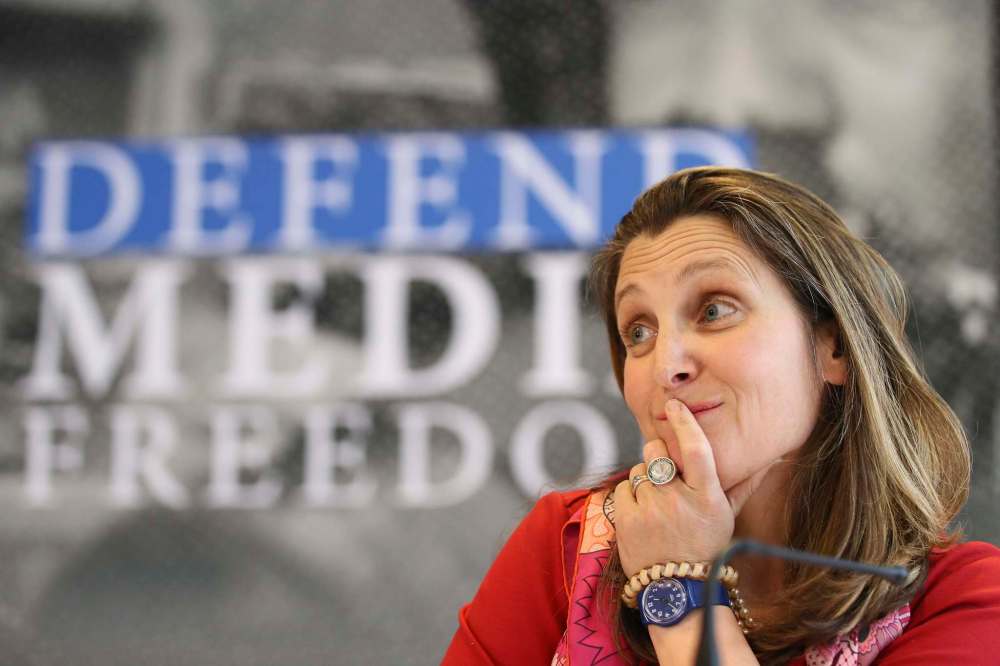
“I don’t think the government has recognized the need to change this comfy, cozy lobbying relationship,” Angus said. “It’s unhealthy for our economy, or for democracy.”
Still, in Angus’ Northern Ontario riding, Facebook connects disparate towns and reserves, and he uses it to keep abreast of their concerns.
“Facebook has become the essential tool for communication, and Facebook can do extraordinarily good things,” he said. “It shouldn’t be take it or leave it.”
Tusikov compares Facebook to a public utility, with small businesses depending on the platform for visibility. A sudden, unexplained change to what content Facebook or Instagram allows can make artists’ revenue source disappear overnight, she said.
Regulation elsewhere
This week, Foreign Affairs Minister Chrystia Freeland said tech firms had “eerie” similarities to monopolies that were broken up a century ago, when oil barons and communication firms held vast sways over society.
Without promising any specific policy, Freeland noted moves in the United States toward anti-trust legislation that would break up social-media giants.
Tusikov says it’s hard for politicians to exert that kind of change.
“They just can’t be given the keys to the entire kingdom.”
— Conservative MP Bob Zimmer
“Political parties are deeply embedded with social media, especially Facebook. They rely on Facebook to reach these targeted, key demographics to figure out how people might vote; to even float policy proposals by these key groups,” she said.
“It makes it very difficult for politicians to then say ‘we’ll vote to restrict Facebook.’ This is something where there’s going to have to be a great deal of public pressure put on them.”
Tusikov said the problem seems particularly bad in Canada.
“We’re behind the ball,” she said in an interview from Germany, where she’s looking at how companies form their own rules.
In February, the country blocked Facebook from pooling data collected on numerous websites, saying the firm coerced users to give up too much data. Germany’s hate-speech laws have also compelled Facebook to delete hundreds of posts, or face fines of up to $75 million.
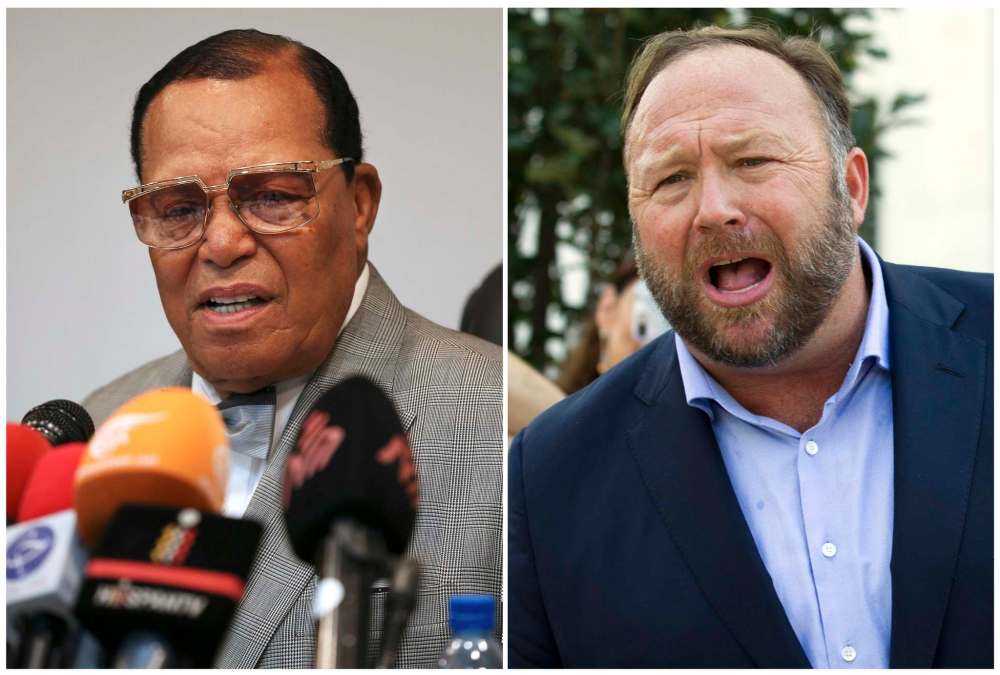
This week, Facebook platform banned American conspiracy theorist Alex Jones, but Tusikov said the platforms “incredibly opaque” process means it’s unclear what rules the platform used to justify that decision, how it interpreted them and whether Jones will be back on the website.
“The fine-grained nature of that makes people in North America very nervous, because they see it as a slippery slope. But at least this is put in legislation — it went through a process, it’s public, it’s transparent. We know exactly what’s being blocked,” she said.
A month ago, the British government issued its Online Harms White Paper, which asking the public how the United Kingdom should regulate everything from targeted advertisements to taxes to hate speech and harassment. Britons have until July to weigh in on large themes that will shape the government’s regulations.
Tusikov argues it’s time Canada had a similar thought-out debate.
She fears Canada will instead follow Australia, where a hastily drafted bill to regulate Facebook was passed ahead of this months’ election, in the wake of the New Zealand mosque shooting.
The bill — tabled and made law in just three days — threatens companies with jail time and fines if they don’t remove violent content promptly, but experts say the criteria are so strict companies will likely rely on algorithms to indiscriminately remove content because they don’t have enough time to vet between legitimate expression and threats.
‘The new public square’
Gould, the minister in charge of ensuring the integrity of Canada’s elections, admitted the thought of leaving the platform is daunting.
“When it first came out I was in my first year of university, and it was a very different platform than it is today,” the 31-year-old said. “But we want to assure that whatever is happening today — or in the future — respects the values, the norms and the traditions that we’ve established for really important reasons here in Canada.”

Conservative MP Bob Zimmer believes the Liberals aren’t taking social-media regulation seriously, but he admits it’s not easy to balance regulating against “a massive scale of surveillance” while keeping enough openness for digital innovation.
“We’re all trying to get a handle on this,” said Zimmer, who chairs the House committee investigating Facebook. “Every time we seems to catch up a little bit, (tech firms) are another five miles down the road.”
On May 28, Canada will host the International Grand Committee on Disinformation and “Fake News,” which Angus said represents the best hope for some sort of co-ordinated, multi-national solution for Facebook. “In lieu of that, there may be a whole series of one-off decisions.”
Like Angus, Zimmer said the platform is often the main way many of his northern British Columbia constituents reach him, but he’s concerned about the platform breaching their privacy rights, and selling their data to advertisers.
Zimmer’s Facebook page is one of the first Google results. A single click allows users to send his office a message. He posts videos of visit to far-flung communities, and the comments have helped him shape how he votes in Parliament.
“It’s the new public square; that’s the reality for a lot of us. Do we want it to go away? No,” he said.
“They just can’t be given the keys to the entire kingdom.”
dylan.robertson@freepress.mb.ca
History
Updated on Monday, May 6, 2019 11:16 AM CDT: Corrects Angus quote.

